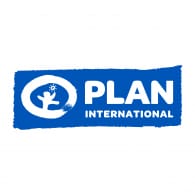Plan International Nigeria has engaged state Assembly members from Adamawa and Sokoto states on possible ways of reflecting Gender Responsive Education Sector Plan (GRESP) in their 2025 budget.
The Plan International-EU Impact Project Coordinator, Sadiya Abbas, made this known in Abuja at an event aimed at Strengthening Civil Society Organisation to Enhance Education for All Projects in Northern Nigeria.
The event is an High-Level Strategic Engagement towards a Guaranteed Gender Responsive Education 2025 Budget.
Abbas said that the project basically was set out to influence gender responsive education sector plan for Sokoto and Adamawa as well as the Tsangaya reformation.
“We realised that the education sector plan for Adamawa is not gender responsive at all.
” And what we expect to see after this engagement is that the duty bearers go back home, sit down to debate and review this budget and also use the learnings from here and our charter of demand to be included in the 2025 budget.
“So we’re hoping that as they go back, the 2025 education sector plan that will be passed in Adamawa will include line items that are gender responsive,” she said.
Abbas advised education actors to always identify gender responsive gaps in their plan and ensure that adequate considerations were giving in the budget to address the gaps.
“The ESP must respond to the issues of girls in school and ensuring that the schools are conducive for girls to learn.
“One of the major thing we are looking at is to establish a pad bank in schools. We understand that enrollment in Adamawa is not an issue.
” We have children come to school to learn and they are being enrolled, but the problem is they don’t stay in school, so retention is low, transition is low, and completion is low.
“So when we have this pad banks in the schools, what happens is that a child who is menstruating does not have to go back home for the period of three to five days and not come to school to learn.
“And then secondly, we are looking towards the angle of ensuring that we have more female teachers who are not just recruited, but that they are empowered through trainings and workshop to be able to also address the issues that affect girls,” she added.
On her part, the Majority Leader, Adamawa State House of Representative, Kate Mamuno, said the state is progressing in the aspect of girl child education.
Mamuno, also the House Committee Chairman on Women Affairs, pledged to go back and scrutinize the budget in such a way that it reflect allocation for the girl child education.
“We are supposed to have particular allocation when it comes to the issue of sanitary pads, issue of toilets facilities and all what I feel the girl child needs to be taken care of to have a sense of belonging.
“We are going to collaborate with other committees to ensure that this particular issue is taking care of in our budget,” she said.
Also, Hon. Adum Alaba, Adamawa State Chairman, House Committee on Education and Human Capital Development, pledged to identify gender barriers within the states educational system.
Alaba assured that the assembly would ensure that strategies and policies were put in place to address education sector plan of the state.











